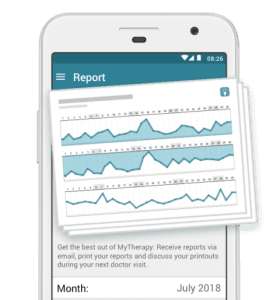If you live with diabetes, you know how challenging it is to control your blood sugar level on a day-to-day basis. For many people, the task can seem daunting. On one hand, sugar consumption may need to be kept at a certain amount, which means some foods should be limited to a specific portion or even avoided at all. On the other hand, it is also important to have a well-balanced diet, including receiving the nutrients from fruit. Fruit, however, contains sugar. Should people with diabetes avoid fruit? Keep on reading to find out why fruit is good for your body even if you have diabetes, as well as answering the ultimate question, “what fruits are recommended for people with this metabolic disease?”
“Don’t eat fruit if you have diabetes”
You might have heard the myth that you can’t eat fruit if you have diabetes because it contains sugar.
It is true that by eating fruit irresponsibly, you could raise your blood sugar level substantially. However, it doesn’t mean you can’t eat it at all, or it isn’t healthy for people with diabetes. Fruit is good if you consume it wisely. Even though the carbohydrates and the natural sugar (fructose) in fruit can affect your blood sugar level, it also gives your body various vitamins and minerals that are good for your health.
Additionally, fruit also contains fiber. People with diabetes are suggested to eat food with high soluble fiber to help slow down sugar absorption, and ultimately, control the sugar level in your blood. Remember, sugars and starches can raise your blood sugar, but fiber doesn’t.
How to decide which fruits are recommended for people with diabetes?
One of many ways to decide is by considering the glycemic index (GI). GI indicates how quickly food can raise blood sugar levels. The higher the number, the faster the food is absorbed, and the quicker it raises the sugar level in blood. Contrary to the popular belief, many fruits have a low GI. Starchy vegetables (e.g., corn and potatoes), on the other hand, have a higher GI.
Another possible way is by assessing the glycemic load (GL). GL is a measurement that takes GI and the portion size into account. This is a more accurate method than the previous one as it gives you extra information about how much of a food item you should consume. As a rule of thumb, food with low GI and low GL is generally better for controlling blood sugar levels.
What fruits are good for people with diabetes?
Now that we know we should take the GI and/or GL indicators into consideration, here are some recommended fruits for people with diabetes:
- Berries
Pick your favorites from the many types of berry out there: strawberry, raspberry, blueberry, etc. They are all rich in vitamin C, vitamin K, potassium, fiber, and antioxidants. - Citrus fruits
A few examples of citrus fruits are oranges, lemons, limes, and grapefruits. They are high in vitamin C, vitamin B, potassium, and magnesium, among others. Citrus fruit is also a good source of fiber. One cup of orange flesh already covers almost a third of the recommended daily dietary fiber intake. - Tomatoes
How do you like your tomatoes? Raw or pureed in a sauce? Regardless of how you consume them, tomatoes are rich in lycopene (antioxidant), beta carotene, potassium, vitamin C, folate, and vitamin K. Explore the many varieties of tomatoes to spice up your meal. - Avocadoes
Not all fat is bad for your health, and certainly not the fat from avocadoes. This stone fruit contains beneficial fats that can help you feel full and keep the sugar level in the blood stable. Besides vitamin B-6, C, E, and K, avocadoes are also a wonderful source of lutein, riboflavin, and niacin. - Squash
Yes, botanically speaking, squash is a fruit, not a vegetable. This remarkable fruit has fairly low calories and low GI which can make you feel satiated without compromising your blood sugar level too much. Enjoy squash all year long with the summer and winter varieties.
Talk with your doctor or dietician to find out what the best fruit options for you are and how much you should consume.
Tips on how to eat fruit responsibly
Here are some tips if you want to enjoy consuming this nutritious food while managing the level of your blood sugar:
- Be mindful of the portion, especially with dried fruits.
Eating too much of anything rarely brings the optimal benefits of the food, including fruit. Consuming it proportionally is always recommended. Refer to the GI and GL scores for more accurate serving and portion sizes. - Choose fresh fruit over processed fruit when you can.
Processed fruit, such as pre-packed juice, canned, and dried fruit, often has added sugar that isn’t friendly to your blood sugar level. If you don’t have access to fresh fruit, opt for the frozen one. - Read the food label.
Always check the label to make sure you know what your food contains. Processed fruit products may not be as healthy as you think. For example, ‘100% fruit juice’ doesn’t always mean completely made of real fruit. It may be diluted, and a heaping amount of sugar could be added for flavor reasons. - Spread your fruit intake throughout the day.
It isn’t recommended to consume the daily fruit intake in one go. Take one serving for breakfast and another one for lunch or snacks. It will make the sugar level in your blood easier to control.
Eating fruit is generally good for anyone. Consuming a well-balanced combination of fruits is frequently associated with a lower risk of developing other health conditions, such as type 2 diabetes, obesity, heart diseases, strokes, and high blood pressure. People with diabetes are, unfortunately, more prone to have the previously mentioned illnesses. This makes it even more important to incorporate fruit into your daily diet.
So, the next time you’re looking for a diabetes-friendly treat, pick something from the fruit basket or the produce drawer of your refrigerator. Fruit shouldn’t be avoided altogether even if you have diabetes. What you should do instead is wisely pick the fruit varieties and watch the portions. Consult with your doctor for more dietary tips and recommendations.
Here are some other articles we think you might like:
Type 1.5 Diabetes: Facts You Should Know About ‘The Other’ Form of Diabetes



